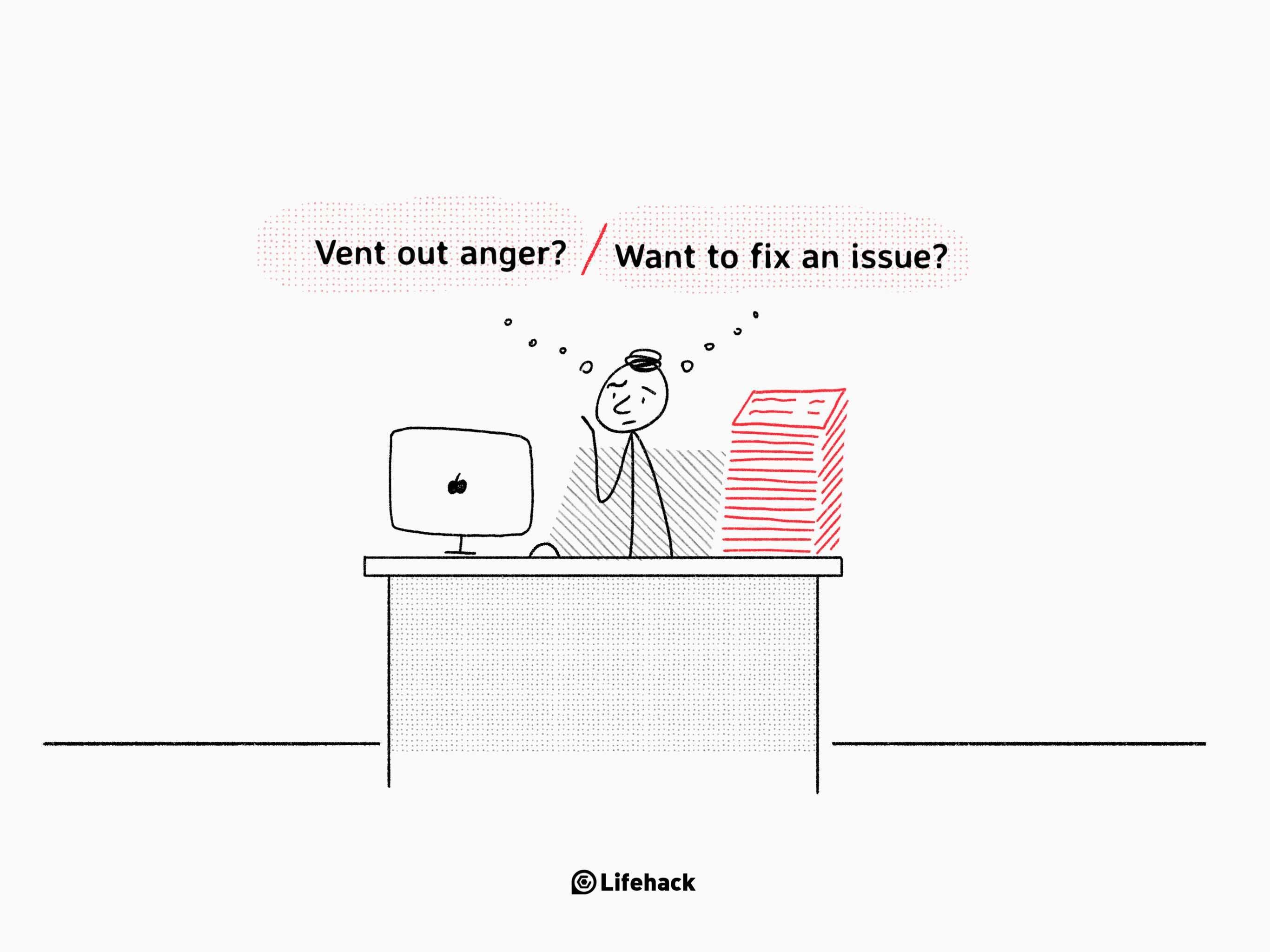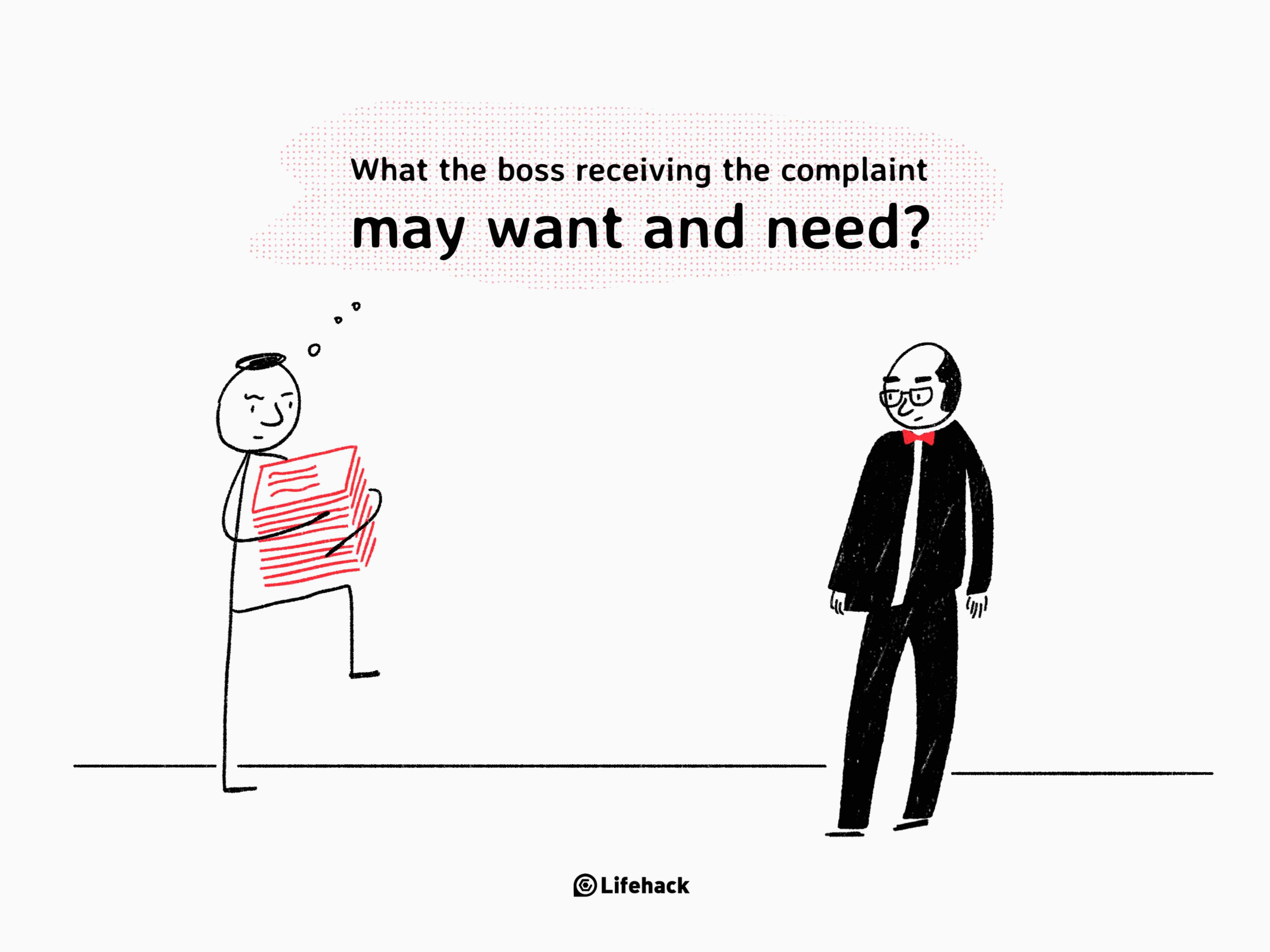Still, as much as we don’t like people who always complain, an average person is said to complain nearly 15-30 times a day.[1] Clearly, there are times when you’ll be justified in complaining. Let’s take a look at some of these.
Why do we hate complaints?
Complaints usually stem from problems that people encounter. Maybe it’s a co-worker who’s not doing his job well – or perhaps a waiter who served you badly. When we experience problems like these, we feel unsatisfied about them, and we naturally want to vent our emotions and express our desire for them to be resolved. Take a look around any shopping centre, and you’ll see dozens of examples of people encountering problems and quickly becoming frustrated and annoyed by their inability to fix them. Why is this? Even if a complaint is valid, people on the receiving end usually struggle to handle it because facts are difficult to accept right in the face. The more the truth is shoved in their face – the easier it becomes for them to ignore and reject the complaint. This is a common defensive mechanism.
As complaining can frequently lead to no result, many people steer clear of making complaints. And for those who do stand up for their rights, their reputation is often negatively affected because people see them as a stubborn and obnoxious complainer. Is there a way that your complaint won’t be ignored and you’ll get what you want? Yes, there is.
Complain with a strategy
You can get what you want if you complain with a specific strategy. For the strategy to work, you should decide if you truly want some results in return – or whether you just want to release your anger.
If you’re only interested in expressing your emotions, then you should stop reading here. But if you want to get results, then you’ll need a plan before complaining. So, what is the strategy that you need to follow? Fgure out who can provide what you want, and then work out the best way to get that person to give it to you.
We’ll delve into the details of this strategy now.
How to get your complaints heard
There are three key ways of ensuring that your complaints are dealt with to your satisfaction.
1. Bite your tongue before you process the situation
If you’ve been hit by a problem, process it first before speaking out. This might mean taking a few seconds or minutes to let the problem sink in, and then to consider what actions you’ll take to bring about a resolution. If it’s something that you have the ability to improve or fix, then your best bet is to just go ahead and do it.
2. Figure out what others want and think from their perspective
Think hard about what your audience’s potential interests and pain points are. Complaining at inappropriate times (e.g., when other people are in the spotlight or when they have bigger or more important issues to deal with) can make you look selfish and prevent you from being heard. Also, excessive or exaggerated complaining about the same thing can trigger negative emotions in others. When this happens – this will typically lead to your complaint falling on deaf ears.
3. Never sound like you’re making a ‘request’
If you lose control of your emotions and start making demands, you’ll quickly try the patience and goodwill of the person who might be able to help you. The secret to effective complaining is to make the other person feel they want to resolve the issue for you. To do this, you may have to go against your instincts, and be extra nice. At the end of the day, getting what you want is more important than being right or sounding tough.
Let’s be honest, no one likes to be told what to do. Instead of saying: “I need this doing now!” Try softening your tone and saying something like: “You don’t have to do this…” This indirect approach is non-confrontational and makes the person serving you think that it’s okay to help you. Instead of feeling ordered around, they are simply responding to a query. No mental or emotional barriers will go up, and nine times out of ten, the person will happily help you out.
Relevant complaints are powerful
Now that you know the secrets of complaining in an effective way, you’ll no longer be afraid to speak up when needed. By complaining in the right way, you’ll ensure that mistakes get rectified and promises are kept. But above and beyond this, you’ll also develop a powerful self-belief that will enable you to chart your own course through life. Featured photo credit: Freepik via freepik.com




